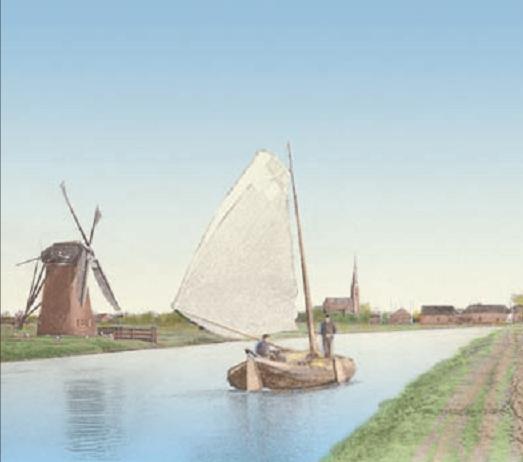Bargemaster

Voorhout, a Dutch village near the Noordzee,
copes well with the German occupation in World War Two.The inhabitants
are not affected as badly by food shortages
as their counterparts in large cities.
The Van Wouw clan
is particularly adept at adjusting to wartime inconveniences.
Three brothers and one sister, residents of Voorhout, not
only provide for themselves and numerous children; they also support
relatives living in Amsterdam, The Hague and Leiden
During the early
war years, Cees van Wouw and his son, Peter, acquire a quantity of
very valuable jewels. Kobus van Wouw views the unusual acquisition.
He advises the eight-year old boy where to hide the precious
stones. No other family
member knows about the jewels. There is an understanding among the three that the gems will
be their salvation if times get really bad.
Cees’ small farm
furnishes enough dairy products for the family. His fields, as well as those of
his brothers, Kobus and Henk,
yield the necessary vegetables and potatoes. And, in 1943, wheat is still fairly
easily acquired. Kobus, who spends most of his time as a bargeman, always
seems to know where to get it.
There is another
fortunate circumstance. The canals, in and around Voorhout, are abounding with fish and the
Van Wouw family has many ingenious methods for seizing that great
source of protein.
During the final
war year, people in the cities are literally starving. If still able to walk, they go to the country side to find
food. The Van Wouw family has to devise methods for safeguarding its food supply.
Wheat is almost impossible to procure. However, Kobus and Peter are able to obtain large quantities by
exchanging for jewels. Together with family members from The Hague, they set up a fascinating
business.
Characters and Themes
- The main character, Kobus (or Kok), is known as the best bargeman in the region. That reputation initiates a close relationship with the local resistance movement. More ...
- Attempting to remove Kok's inhibitions with double measures of gin had become an established routine at the Van Wouw birthday gatherings. Peter's inquisitive aunts were forever trying to get tidbits of information about Kok's lady friend in Noordwijkerhout. More ...
- According to the Germans, the Van Duin family in Katwijk lived too close to the Noordzee. So, they were ordered out of their house and sent to Voorhout. They took up temporary residence in the Boerhaavestraat. Within days, Jaap van Duin and Peter became good friends. Peter admired Jaap's courage. More ...
